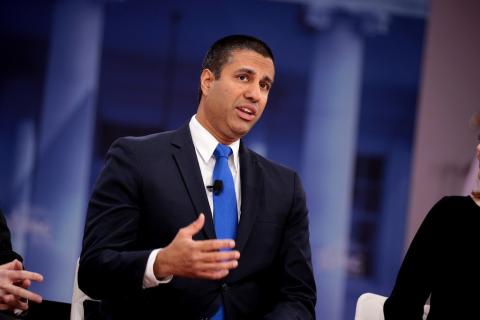The Obama Era Net Neutrality regulations have officially been repealed this week by the Federal Communications Commission. The changes took effect Monday, much to the chagrin of many Internet content companies, their stakeholders, fans, and supporters.
Opponents of the net neutrality rollback say it could cost consumers and content creators (like Netflix and Hulu) more to use the Internet, while benefiting Internet Service Providers like Comcast and AT&T by allowing them to charge a premium for an Internet "fast lane."
They envision a future in which the Internet has fast and slow "lanes" for different kinds of content, or content from different sources, hence their use of the term "net neutrality" to denote an Internet infrastructure that does not distinguish between different kinds of content or their sources, and therefore doesn't give priority to one packet of information over another as it flies over fiber optic cables between computer nodes at the speed of light.
They are concerned it could even result in a form of soft censorship by ISPs, who are now free, they say, to "throttle" or limit the bandwidth of websites and other online content that expresses views they oppose for political or business reasons, leading to a push by legislators to reinstate the regulations by an Act of Congress.
So the front in this public policy battle has moved from the executive realm to the legislative, and that means voters now have a greater role to play in this discussion, and Independent voters who feel strongly about the controversy one way or another, may want to call or write their representatives' office to give them a better sense of where their constituents stand on the issue.
Mark Stanley of Demand Progress, warned:
"Each day that goes by we don't have Net Neutrality protections because the FCC repealed them, we're going to see a slow chipping away of the open internet we've all come to rely on."
But supporters of the changes say the Obama era regulations were never about "net neutrality," but increasing the size, role, and influence of the federal government, and extending the reach of the federal regulatory regime into cyberspace.
They don't call it a repeal of Net Neutrality, but the restoration of Internet freedom. That's the title of the press release published by the FCC regarding the changes Monday, "FCC’s Restoring Internet Freedom Order." In it, the FCC asserts that the Obama era net neutrality regulations (based on laws written in 1934) have had a chilling effect on investment in broadband:
"The Internet wasn’t broken in 2015, when the previous FCC imposed regulations dating back to 1934 (known as 'Title II') on Internet service providers. And ironically, these regulations made things worse by limiting investment in high-speed networks and slowing broadband deployment. Under Title II rules, broadband network investment dropped more than 5.6%— the first time a decline has happened outside of a recession."
This decrease in investment has been a real-world, measurable consequence of the FCC regulations, in contrast to the potential consequences and insinuations made by opponents of the Internet Freedom Order, who warn "you could pay extra," and "Here's how [The Internet Freedom Order] could affect you."
The consequences of net neutrality regulations have also measurably had a disproportionate effect on smaller ISPs, who find compliance more burdensome than larger companies with economies of scale on their side, more resources to ensure regulatory compliance, and the influence to shape new regulations.
